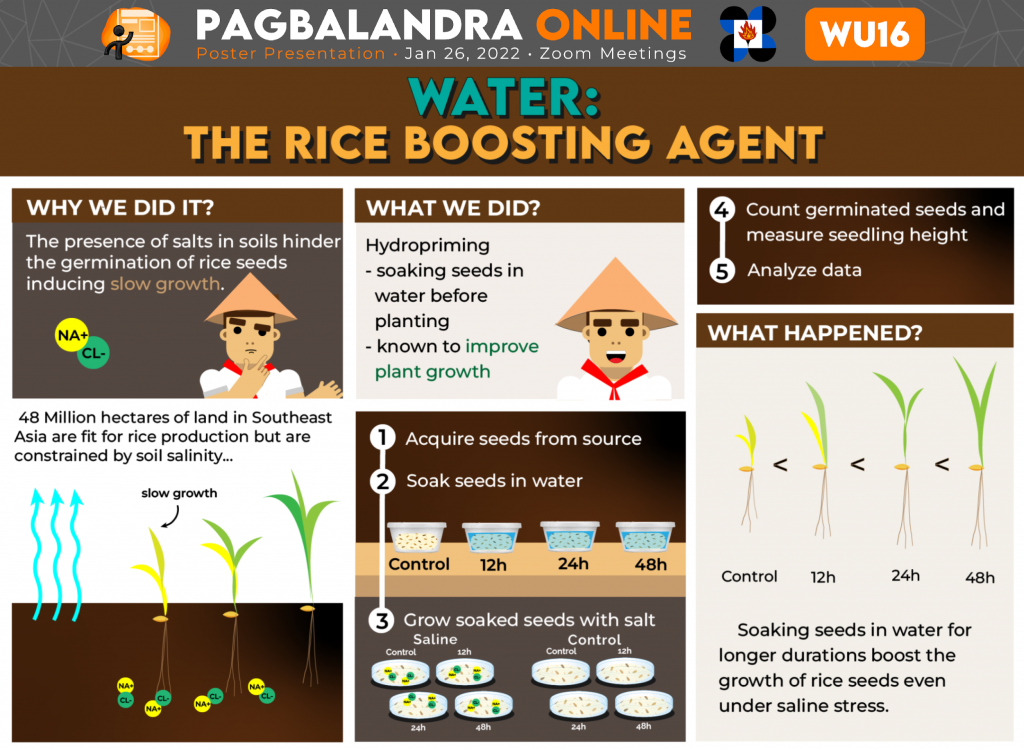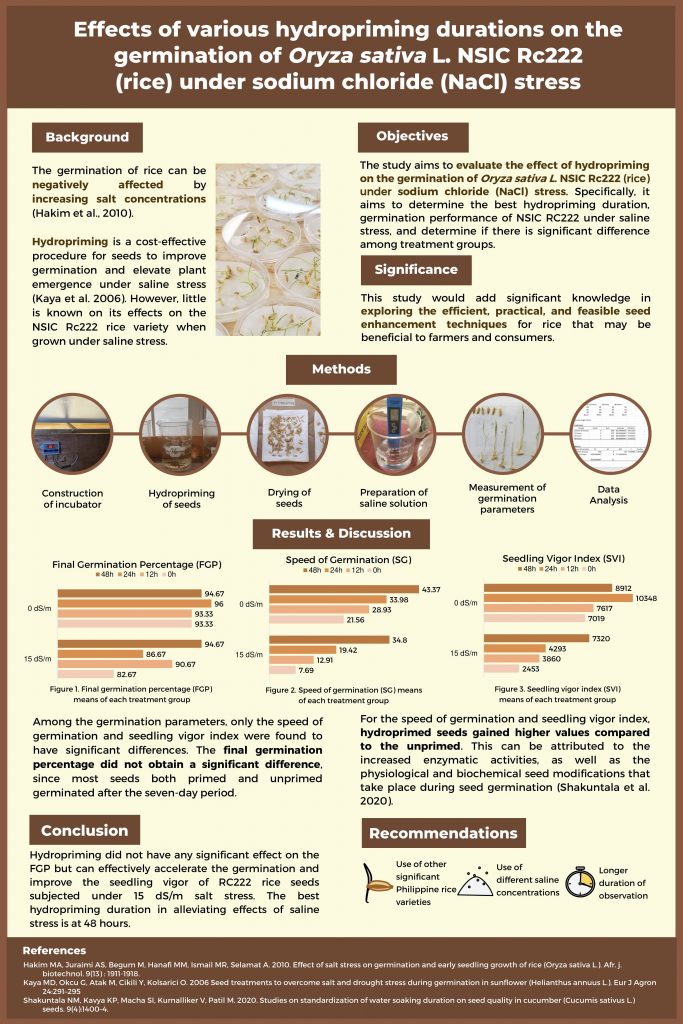Germination of Oryza sativa L. NSIC Rc222 under sodium chloride (NaCl) stress hydroprimed at various time durations
GYLA JANE P. NISMAL, ANDREW PAULO P. ANTENOR, ARYL JODE MICOLE T. VIDAL, and ANDREA LUCYLE M. BELA-ONG
Philippine Science High School Western Visayas Campus – Department of Science and Technology (DOST-PSHS WVC), Brgy. Bito-on, Jaro, Iloilo City 5000, Philippines
Abstract
Soil salinity decreases plant productivity and induces slow growth especially under very high levels ranging from 9 dS/m to 15 dS/m. To overcome the negative effects of soil salinity, hydropriming or soaking of seeds in distilled water is used as a seed priming technique to activate various metabolic processes in the seed which can promote growth under stress. The study evaluated the germination of Oryza sativa L. NSIC Rc222 for seven days under 15 dS/m salt stress hydroprimed at 12 h, 24 h, and 48 h, with unprimed seeds as the control. Germinated seeds were counted every day, and seedling height was measured to compute for the final germination percentage (FGP), speed of germination (SG) and seedling vigor index (SVI). Results show that hydropriming the seeds for 48 h resulted in the highest SG and SVI values while no significant differences were recorded among the FGP of all treatments. Increasing hydropriming duration improves the germination parameters of Oryza sativa L. NSIC Rc222 seeds under sodium chloride (NaCl) stress. In conclusion, hydropriming is effective in mitigating the negative effects of saline stress on SVI and SG but it has no effect on germination viability.
Keywords: duration, hydropriming, Oryza sativa L., Seed germination, sodium chloride

